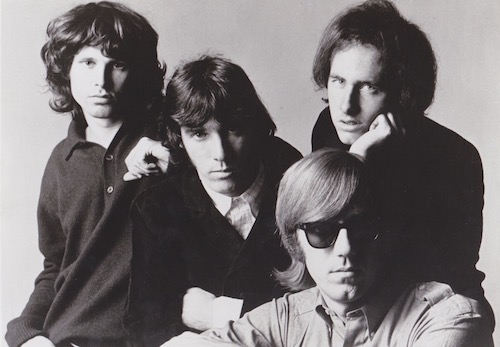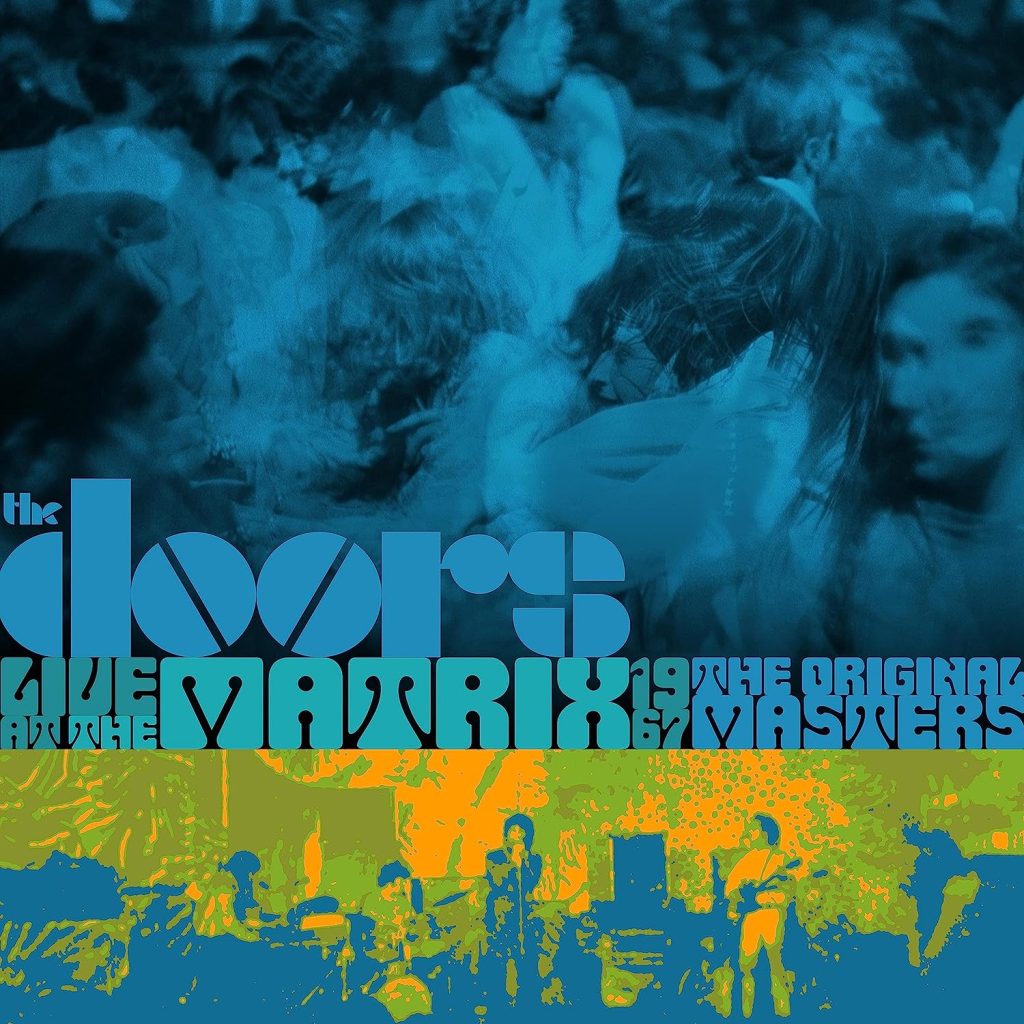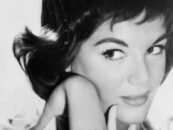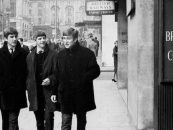The Doors’ ‘Live at the Matrix’ Showcases the Band in 1967: Review
by Jeff BurgerBy March 1967, The Doors had been in existence for the better part of two years and their eponymous debut album had been out for two months. But the record—which would ultimately spend more than two years on Billboard’s Hot 100, peaking at #2—still hadn’t charted. Moreover, the release of their big #1 single, “Light My Fire,” was still more than three months away.
As such, the band was little known when it took the stage for five nights—March 7 to 11—at San Francisco’s tiny but important Matrix club, where acts like the Velvet Underground and Jefferson Airplane also played. The venue could seat about 120 but was reportedly almost empty for the Doors shows, two of which were recorded by Peter Abram, who co-owned the venue after co-founder Marty Balin, one of the Airplane’s singers, sold his interest in it.
The remastered Doors live Matrix tracks were uploaded to their YouTube channel on January 17, 2025, as part of the band’s 60th anniversary celebration.
A couple of tracks from these recordings—which were among the first of the quartet’s concerts to be preserved on tape—appeared on The Doors: Box Set in 1997, and a two-CD 2008 release featured 24 of the songs that had been taped. However, these albums did not draw on the original master tapes. And while there have also been bootlegs, these have evidenced inferior sound quality as well. Those shortcomings are addressed on the Doors new Live at the Matrix 1967, a limited-edition three-CD (or five-LP) set, released on Sept. 8, 2023, that is drawn from the first-generation seven-inch tape reels and includes all 37 songs that Abram recorded. [It’s available in the U.S. here and in the U.K. here.] Eight of them were previously unreleased, while most of the others have not previously been available from first-generation tapes (though 15 such tracks were offered as Record Store Day vinyl exclusives in 2017 and 2018).
The program, which runs well over three hours and includes two complete shows, is wide-ranging. It embraces eight of the 11 songs from the Doors’ debut LP, among them “The Crystal Ship,” “Light My Fire,” “Twentieth Century Fox” and two versions each of “Alabama Song (Whisky Bar),” “Back Door Man,” “Break on Through,” “The End,” and “Soul Kitchen.”
Also featured are early versions of six of the 10 tracks that would show up on Strange Days, whose release was still more than half a year away: “Unhappy Girl,” plus two renditions each of “I Can’t See Your Face,” “Moonlight Drive,” “My Eyes Have Seen You,” “People Are Strange” and “When the Music’s Over.” In addition, there are two readings of “Summer’s Almost Gone,” which wouldn’t surface on disc until nearly a year and a half later with the release of Waiting for the Sun.

The Doors in 1967. l. to r.: Jim Morrison, John Densmore, Ray Manzarek, Robby Krieger (early Elektra Records publicity photo).
That’s not all. The setlists include a variety of blues and R&B covers, among them Willie Dixon’s “Close to You,” John Lee Hooker’s “Crawling King Snake,” Van Morrison’s “Gloria,” James Moore’s “I’m a King Bee,” Bo Diddley’s “Who Do You Love,” B.B. King’s “Rock Me Baby” and Allen Toussaint’s “Get Out of My Life Woman.” Believe it or not, the Doors also offer an instrumental take on “Summertime,” the George Gershwin and Dorothy and Dubose Heyward standard that Janis Joplin would also cover with Big Brother and the Holding Company.
Related: Much more about the legendary rock club, The Matrix
Perhaps most intriguing are previously unheard instrumental covers of two jazz numbers, Miles Davis’ “All Blues” and Milt Jackson’s “Bags’ Groove,” both of which incorporate elements of the Doors’ trademark sound. As for the group’s original material, most of it features arrangements, instrumentation and vocals that are not far removed from what you hear on the now well-known studio recordings. There are exceptions, though, such as on “Light My Fire,” which in the Matrix version is missing the Ray Manzarek keyboard intro that launches the studio rendition so powerfully.
Related: Ray Manzarek on the Doors’ six studio albums
The music is consistently excellent. Just don’t expect it to be particularly revelatory—except to the extent that it shows how fully formed the Doors’ vision was early on.
Listen to a previously remastered version of the band’s first huge hit
Igniting a year-long 60th-anniversary celebration, The Doors will unveil their iconic Bright Midnight Archives live recordings on streaming services for the first time throughout 2025.
Tracing their global journey from tiny clubs to arenas, it scrapbooks the band’s storied three-year run on the road as they closed out the sixties. Upcoming releases include Live in Boston, 1970, recorded at the Boston Arena on April 10, 1970, and includes both performances. Live in Philadelphia ’70, recorded at The Spectrum on May 1, 1970, and Live in Pittsburgh, 1970, recorded at the Pittsburgh Civic Arena on May 2, 1970; Live in Detroit 1970, recorded May 8, 1970, at the Cobo Arena, one of the longest Doors shows ever caught on tape; Live in Vancouver, 1970, recorded at the Pacific Coliseum on June 6, 1970, and features a guest appearance by blues legend Albert King; Live In Bakersfield, California, August 21, 1970; and Live at Konserthuset, Stockholm, September 20, 1968. The latter contains both the early and late shows from The Doors’ appearance at the renowned concert hall, immortalizing the climactic conclusion of their only European tour. Each release has been remastered by The Doors’ longtime engineer/mixer, Bruce Botnick.







No Comments so far
Jump into a conversationNo Comments Yet!
You can be the one to start a conversation.